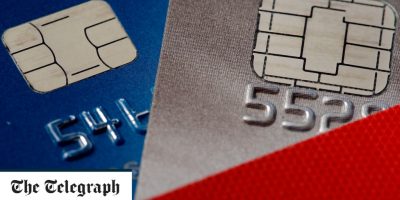Travelex has launched a “Supercard” – a new Mastercard that claims to offer the cheapest way to spend money abroad.
An earlier version of the card launched under a pilot scheme had no fees for cash withdrawals or spending in more than 43 countries. The new Supercard is slightly different. Overseas spending is still free but a 2.99pc fee has been introduced for cash machine withdrawals.
How does it work?
The Supercard is unusual as it isn’t a prepaid card and does not require you to open a linked account.
Instead, it is connected to your credit or debit card via an app available for iPhone or Android smartphones.
Customers can register up to five debit or credit cards on the app and choose one as the default. When you use the Supercard abroad it debits the amount from the chosen account. Travelex says this keeps overseas purchases fee-free as your bank will process the transaction as if you were at home.
You must have a registered UK address and a registered UK bank account to qualify for a Supercard. A Travelex spokesman said most people who applied for the card were “likely to get one”.
Credit:
Sanjit Das/Bloomberg
Customers will not be credit checked for the Supercard, although details such as name, address, email, phone number and date of birth will need to be verified.
Spending is tracked on the app and you can see each transaction in real time if you have an internet connection.
The card is designed for overseas spending so don’t be tempted to use it back home; this would result in a 1pc charge on all transactions and a £1 fee for each ATM withdrawal.
Is it any good?
Fee-free overseas spending is a good offer for any traveller. However, Andrew Hagger of Moneycomms, an independent analyst, said the 2.99pc fee for cash withdrawals was “not very super”.
He added that unless you were in a city such as New York, where card terminals are widely available, most holidaymakers would need to withdraw cash for use in restaurants, bars and markets.
The Supercard uses the exchange rate set by Mastercard, which Telegraph Money has found to be generally better than Visa’s. The table shows how much it would cost in sterling to buy 11 popular currencies using a card provided by Mastercard or Visa. In most cases, Mastercard is slightly cheaper.
The cost of buying 100 of local currency (£)
Mr Hagger said he wasn’t "blown away" by Travelex’s Supercard but suggested it would be fine for those who used it just for overseas spending. He said the set-up process could put some consumers off.
He said: "It’s hard enough to convince members of my family to get a traditional card to use overseas. But the downloading of the app, the registering and the linking of your other cards may prove too much bother for some."
What other cards are worth considering?
While the overseas cards market is very competitive, providers apply different fees to a range of features, which makes it hard to compare what’s available.
For example, some prepaid cards may charge to load money on to the card while others may make their money by offering a less competitive exchange rate instead.
Below are some examples of the best prepaid cards on the market and the charges that may apply.
Source: Moneycomms
With credit cards, consumers need to weigh up the interest rate along with the foreign use charges.
Source: Moneycomms
Some debit cards will charge a foreign usage fee and a foreign ATM charge but these are also hard to compare.
Source: Moneycomms
Mr Hagger said: “Watch out for the cards that charge you a loading fee, cash withdrawal fee and a set fee for each purchase you make with your debit card.”
Have a question for our experts? Email moneyexpert@Finance.co.uk. The best of the answers are included in our weekly newsletter
























Comments